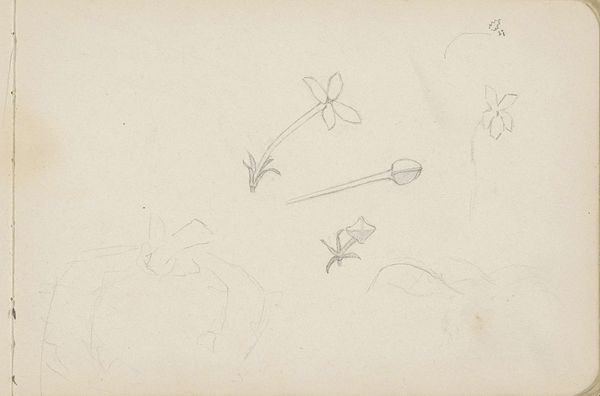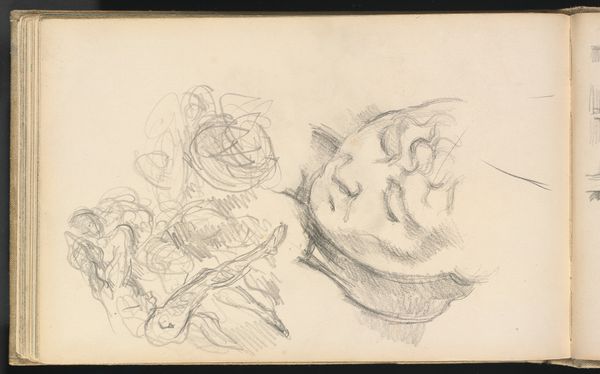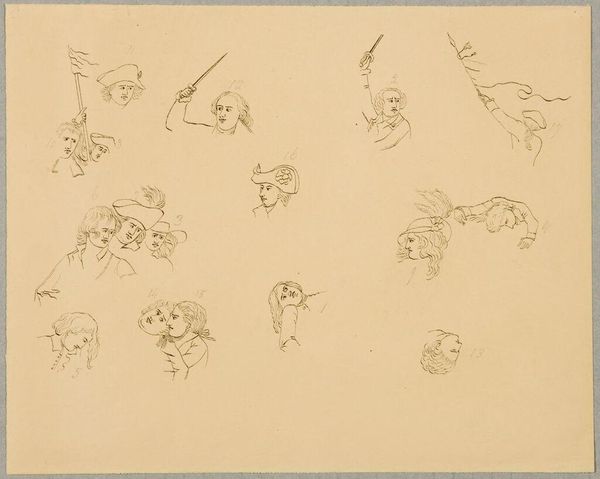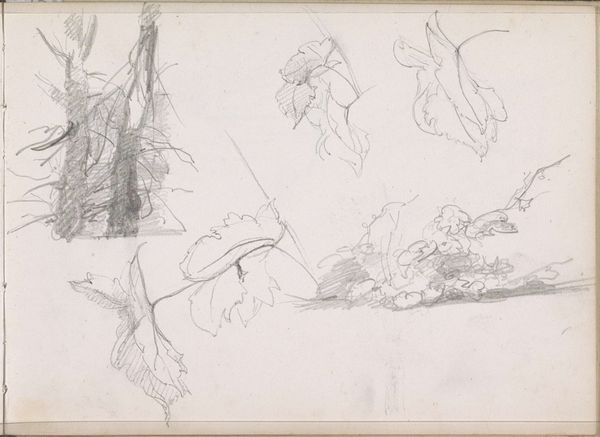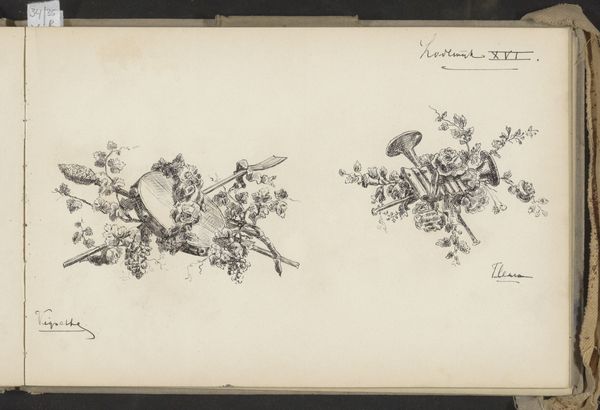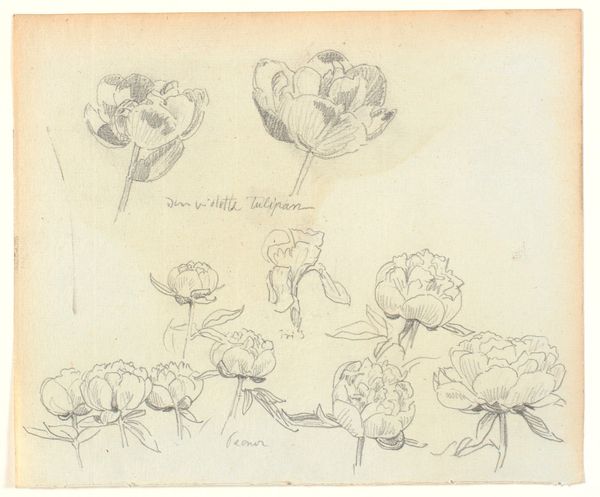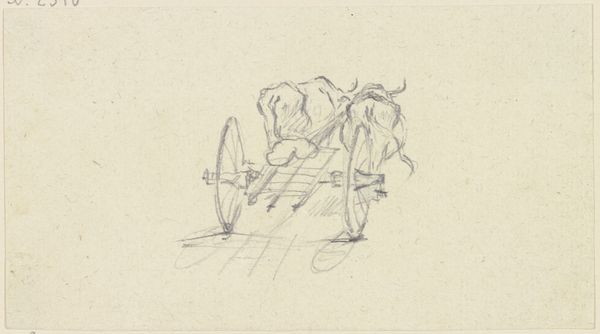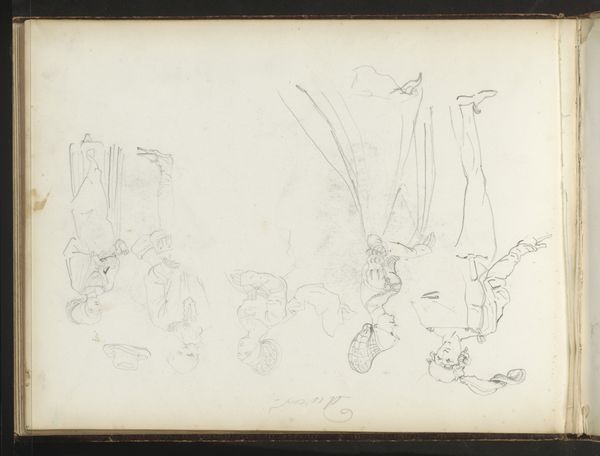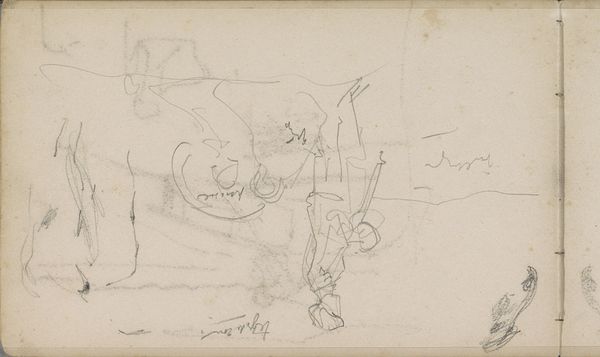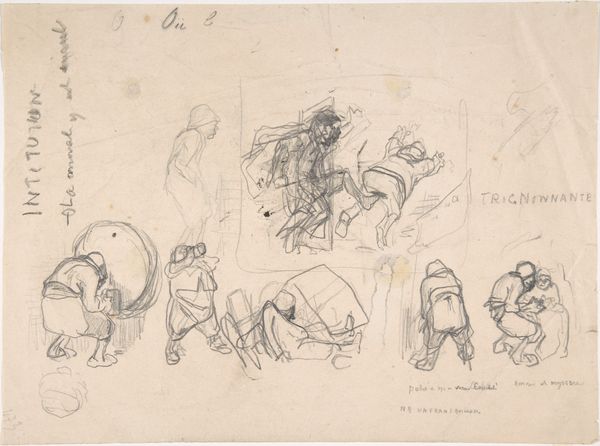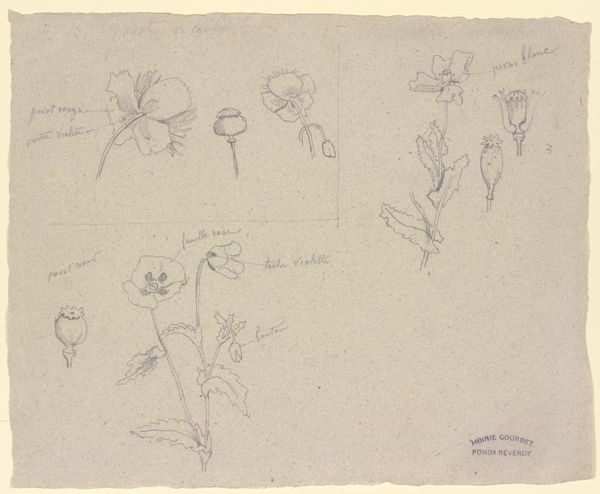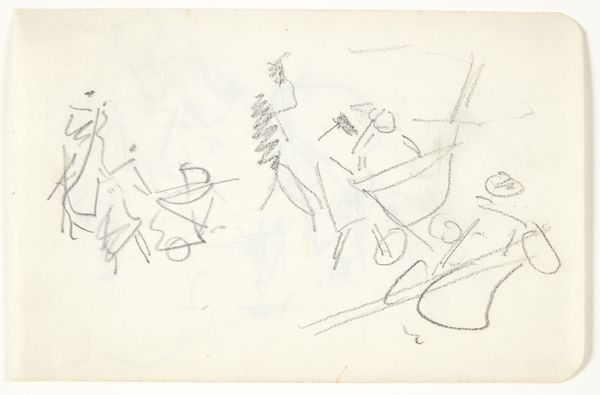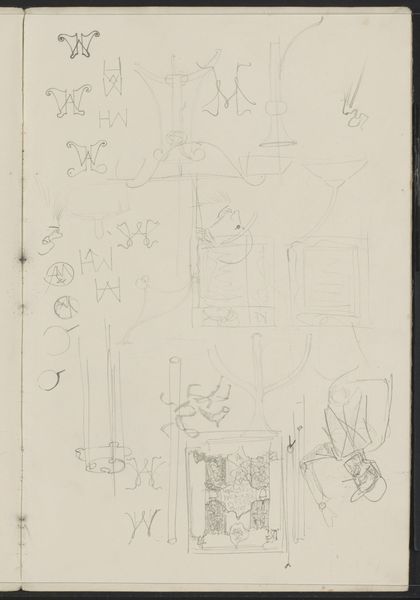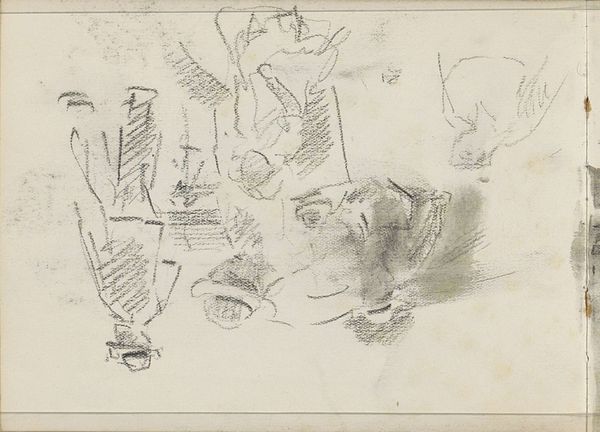
Studieblad met rozen, lelies en voorwerpen zoals een kris en juwelenkoker 1865 - 1936
0:00
0:00
drawing, paper, pencil
#
drawing
#
comic strip sketch
#
quirky sketch
#
pen sketch
#
cartoon sketch
#
paper
#
personal sketchbook
#
ink drawing experimentation
#
pen-ink sketch
#
pencil
#
sketchbook drawing
#
storyboard and sketchbook work
#
sketchbook art
#
realism
Dimensions: height 247 mm, width 411 mm
Copyright: Rijks Museum: Open Domain
Editor: Here we have Nicolaas van der Waay’s "Studieblad met rozen, lelies en voorwerpen zoals een kris en juwelenkoker," created sometime between 1865 and 1936. It's a study sheet done in pencil and ink on paper, showing various objects including flowers and what looks like a dagger, or 'kris'. The sketch-like quality makes me wonder what van der Waay was trying to capture. What can you tell me about this piece? Curator: This "Studieblad" offers a glimpse into the colonial gaze and the construction of the "Orient" through art. Van der Waay's sketch presents not only a study of objects like the kris, a traditional Indonesian dagger, and a jeweled box but also a subtle encoding of power dynamics. We have to ask: Who is producing this image, and for what audience? The Western artist is appropriating and archiving items representative of Indonesian culture. Editor: So the very act of sketching these objects is a statement? Curator: Precisely. Consider how the delicate floral arrangements contrast with the kris. Are they merely aesthetic observations, or are they symbolic juxtapositions of femininity and exotic weaponry? By including these objects, van der Waay participates in a long history of Orientalist representation, shaping perceptions of Indonesian culture for a Western audience. What feelings do you have about that now? Editor: I didn't realize how much history could be embedded in what seems like a simple sketch! Seeing it as an act of cultural representation gives the artwork so much more weight. Curator: Indeed. Recognizing the complex socio-political context embedded within this image invites us to consider whose stories are being told, and from what perspective. What appears innocent on the surface often has more sinister underpinnings. Editor: I’ll definitely look at sketches differently now, thinking about who's behind them and what power dynamics might be at play. Thanks for your insights.
Comments
No comments
Be the first to comment and join the conversation on the ultimate creative platform.
